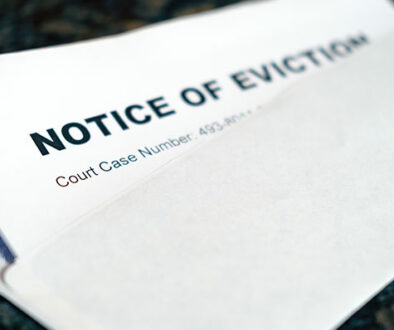A Landlord's Challenge: Navigating Noise and Disruption from Tenants
Landlords often face the delicate task of balancing the comfort of all residents while addressing the challenges presented by noisy or disruptive tenants. A harmonious living environment is essential for tenant satisfaction and the long-term value of the property. In this article, we’ll delve into the landlord’s perspective on dealing with noisy or disruptive tenants and explore positive strategies to address this common dilemma.
- Establish Clear Noise Policies:
From the outset, include clear noise policies in the lease agreement. Specify acceptable noise levels during various times of the day and emphasize the importance of respecting neighbors. Tenants should understand the community expectations to foster a peaceful living environment.
- Open Communication Channels:
Encourage open lines of communication with tenants. Establish a rapport where tenants feel comfortable discussing any concerns, including noise-related issues. This approach allows landlords to address problems early on and prevents escalation.
- Investigate and Document Complaints:
When noise complaints arise, conduct a thorough investigation. Document specific instances, times, and details of the disturbances. Having a clear record of the issue is crucial for addressing the problem with the involved tenants and, if necessary, taking further action.
- Issue a Friendly Reminder:
In the initial stages of addressing noise concerns, issue a friendly reminder to the tenants involved. Politely inform them of the reported disturbances and reiterate the importance of abiding by the noise policies outlined in the lease agreement.
- Mediation Services:
Consider engaging mediation services to facilitate communication between tenants. Mediation provides a neutral platform for both parties to express their concerns and work towards mutually agreeable solutions, avoiding potential conflicts.
- Implement Quiet Hours:
If noise issues persist, consider implementing specific quiet hours during which loud activities are restricted. Clearly communicate these hours to all tenants, emphasizing the importance of respecting the designated quiet periods.
- Leverage Technology:
Incorporate technology to monitor noise levels. Install noise-detection devices or encourage tenants to use apps that measure sound levels. This can provide objective data to identify noise issues and address them effectively.
- Escalate Gradually:
If the noise problem persists despite interventions, escalate the response gradually. Issue formal warnings, outlining the consequences of continued non-compliance with noise policies. This escalation serves as a clear signal that the issue must be resolved.
- Document Lease Violations:
Ensure that all noise-related incidents and communications are thoroughly documented. This documentation serves as crucial evidence in case legal action, such as eviction, becomes necessary. It strengthens the landlord’s position and demonstrates a pattern of non-compliance.
- Seek Legal Advice When Necessary:
If all efforts to resolve the noise issue prove ineffective, seek legal advice. Consult with an attorney to understand the landlord’s rights and responsibilities, and explore the appropriate legal steps to address persistent disruptions.
Eviction becomes a necessary recourse when tenants consistently fail to meet their rent obligations or breach lease agreements. This often challenging and time-consuming procedure involves serving notices, filing court documents and attending hearings. Ultimately, eviction is a means to protect the landlord’s property investment and financial stability while upholding the legal rights and responsibilities of both parties involved.Eviction can be a complex process that should be approached with care and adherence to the law. While it is a last resort, sometimes it becomes necessary to protect the interests of the landlord. By understanding the legal grounds, communicating effectively, seeking legal advice, and following the proper procedures, landlords can navigate eviction problems while maintaining legal compliance and safeguarding their property investments.
With Failure To Launch, landlords have an expedited and cost-effective solution to efficiently address eviction challenges without the usual prolonged timelines and costs associated with traditional legal channels.
You don’t have to go through expensive courts or eviction lawyers.


